The consequences of President Petro's attempt to question the protection of the Colombian electoral system

This Wednesday, the National Registry awarded the key contract for the logistics of the upcoming elections in Colombia—youth councils (2025) and legislative and presidential elections (2026). The contract is worth just over 2 billion pesos, and unlike what usually happens in this type of bidding process, neither the oversight bodies nor independent observers, nor the firms initially interested in the deal, had any major objections to the decision: the winner was the Unión Temporal Integración Logística Electoral 2026 (UT ILE 2026), led by Thomas Greg & Sons.
Thomas is the same company that has been manufacturing Colombian passports for over 15 years, and which President Gustavo Petro has accused, without providing evidence, of alleged acts of corruption to justify his decision to remove it from that contract. The controversial handling by the National Government of its responsibility to guarantee the issuance of this document—whose security and reliability were key to the European Union's decision to withdraw visas for Colombians almost a decade ago—is in the crosshairs of the Attorney General's Office and the Comptroller's Office.
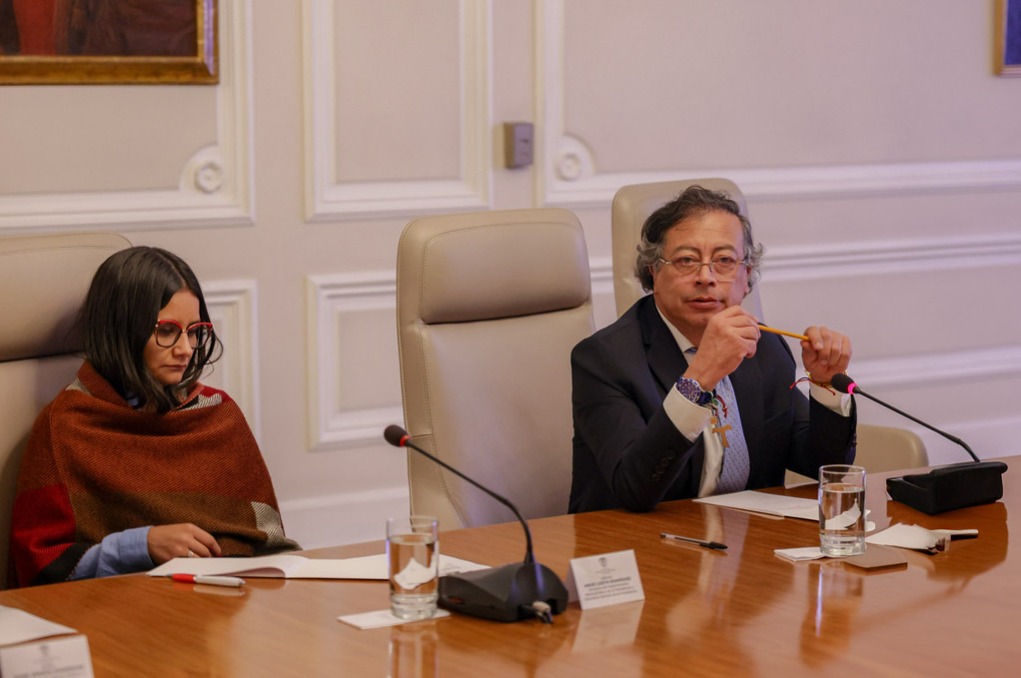
President Gustavo Petro will participate in the July 20th parade in Santa Marta. Photo: Office of the President
“This government is not subservient to Thomas and Gregg (sic), whose board of directors includes former presidents and presidential candidates. It is absolutely immoral that high-ranking candidates from the oligarchy run the company that performs the counts. A huge mockery of democracy,” the head of state wrote shortly before the official awarding of the Registry contract.
Indeed, former presidents Juan Manuel Santos and Andrés Pastrana, as well as former minister and presidential candidate Noemí Sanín, have served on the firm's board of directors. It is also a fact that Thomas Greg has had contracts for the logistics of elections in which Petro was elected to Congress and when he won the Mayor's Office of Bogotá (2011) and the Presidency of the Republic (2022), the two most important elected offices in the country. It is not true, as the President stated, that the firm "does the calculations," as its services focus on the printing and logistics of delivering electoral materials.
The president's remarks prompted a fierce defense of the Colombian electoral system. Attorney General Gregorio Eljach issued a statement denying findings of irregularities in the contracting of the Registry Office and expressing his confidence in the work it has been doing. "I'm not only confident, but I'm determined that the elections will be a democratic, transparent process, free from any unfavorable circumstances. Elections are held on the dates they should be, with the people who should vote, and with the methods that are already established," he stated.
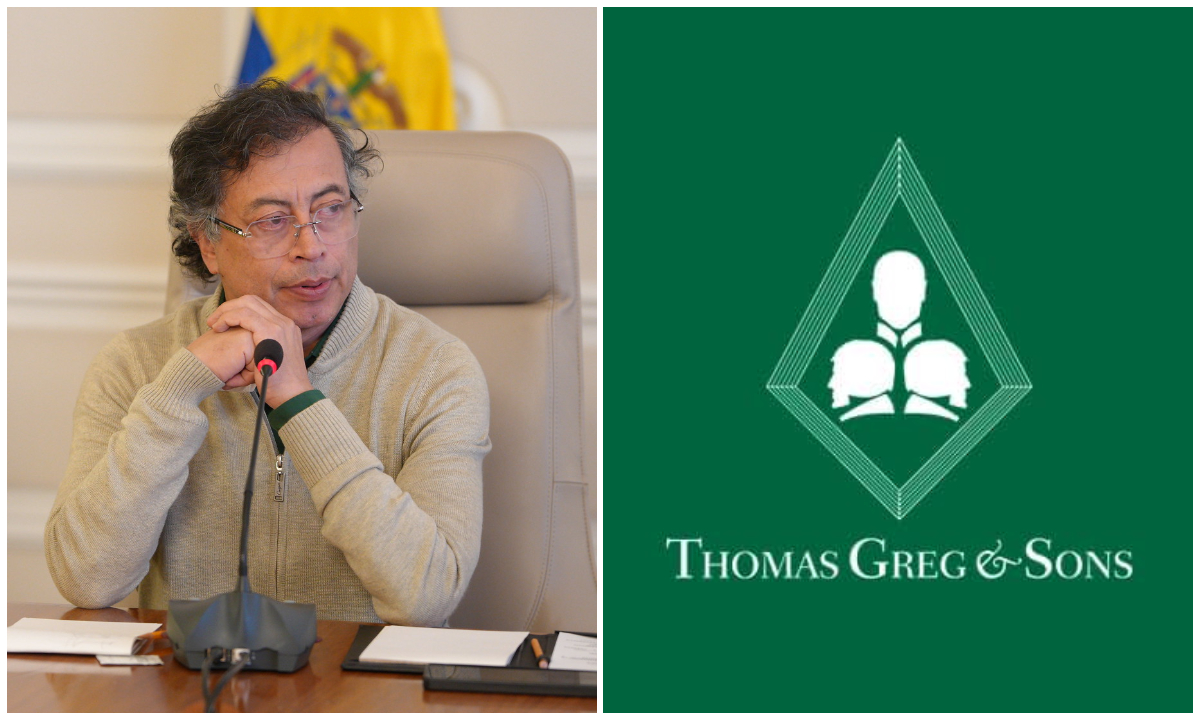
President Gustavo Petro and Thomas Greg & Sons, one of his constant targets of criticism. Photo: Presidency
The unions also joined forces to defend the electoral system. “The Registry Office represents one of the greatest symbols of democracy, and it is incumbent upon all democrats to support its management. It is necessary to highlight and strengthen its development and objectivity, and to protect its position as guarantor of our country's elections,” said Bruce Mac Master, head of the National Association of Businessmen of Colombia (Andi).
The Government's messages In addition to the tweets from the previous session, the government's attacks increased precisely on the day the Registry awarded the contract. "In any democracy, parties must be able to audit the algorithms of the election computing software to determine whether it is transparent or not. In Colombia, this electoral right has never been exercised. I myself asked Registrar Vega to allow it, and I included it in the draft electoral code being debated in Congress. Vega did not agree to hand over the software algorithms, and the electoral code fell through in the Constitutional Court. The company that privately owned the software was Thomas and Gregg (sic), and strangely, with rigged terms of reference, they are now assigning it to manage the electoral software," the president said in his last message on the matter. The head of state's insistence on linking the firm to the management of the electoral software is striking, as it clearly does not correspond to the facts.
These same positions, albeit more moderate, were those presented by Interior Minister Armando Benedetti at Thursday's session of the Electoral Monitoring Commission, held at the Tequendama Hotel in Bogotá. He reiterated that the Casa de Nariño has concerns about full compliance with a ruling by the Council of State ordering the Registry to implement "structural corrections" for the electoral system. "Among these corrections is that the counting software be state-owned. More than five years have passed, and the entities mentioned there have partially failed to comply with these rulings," he stated.
In addition to his long-standing differences with Thomas Greg, the presidential and Interior Ministry messages reveal that the Petro administration is using the February 8, 2018, ruling by the Council of State on the Mira and the irregularities that affected it in the 2014 elections as a starting point. Based on a true story, his statements contain numerous inaccuracies.
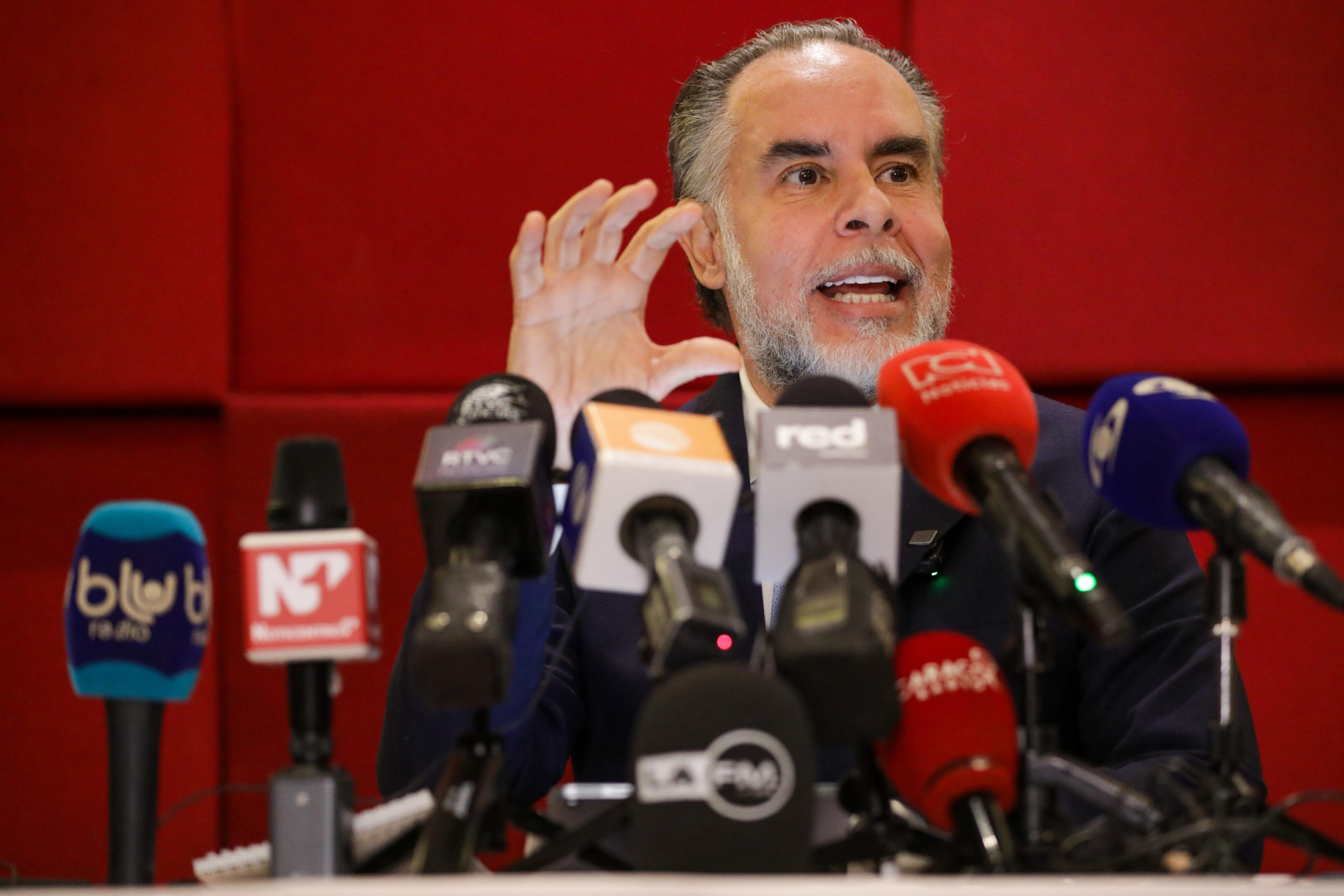
Armando Benedetti, Minister of the Interior. Photo: César Melgarejo EL TIEMPO
The ruling in question annulled the election of Senators Sofía Alejandra Gaviria (Liberal Party), Teresita García (Citizen Option), and Honorio Henríquez (Democratic Center), and awarded those seats to the top three candidates from the Mira party. The reason was that the high administrative court found several irregularities that prevented the party from reaching the minimum threshold for Senate seats in 2014.
Since Thomas Greg & Sons was part of the joint venture that participated in the logistics of those elections, the president has used this case to claim there are no guarantees. However, at no point does the ruling—which is over 300 pages long—indicate that the inconsistencies affecting Mira stemmed from the logistics organization, a task the firm has assumed in more than 20 contracts since 2011.
The errors detected by the administrative court focused on direct manipulation of the software, which—contrary to what the president claimed—was not supplied by Thomas Greg. "Thus, on the one hand, the irregularity that arose in the counting process has been proven, under the charge of violence or sabotage against the voting, information, transmission, or consolidation systems of the results of the March 9, 2014, elections, involving 3,630 records (1,412 tables)," the ruling states.
This clearly shows that the responsibility for supplying the software lay with ASD. This company has supported Thomas Greg in the subsequent bids he won, including the elections in which Gustavo Petro was elected president. Another striking fact is that this same company currently has contracts with the Petro government (Fiduprevisora, the Ministry of Housing, and Fontic), amounting to 15 billion pesos.
Beyond identifying vulnerabilities in the software, the decision does not delve into ASD's potential liability. The company even continued to participate in temporary unions without objection. Furthermore, the electoral body began taking appropriate action to mitigate the problem. So much so that the administrative court itself rejected a 2023 annulment lawsuit against several members of Congress from the Historic Pact, based on the security of the software used.
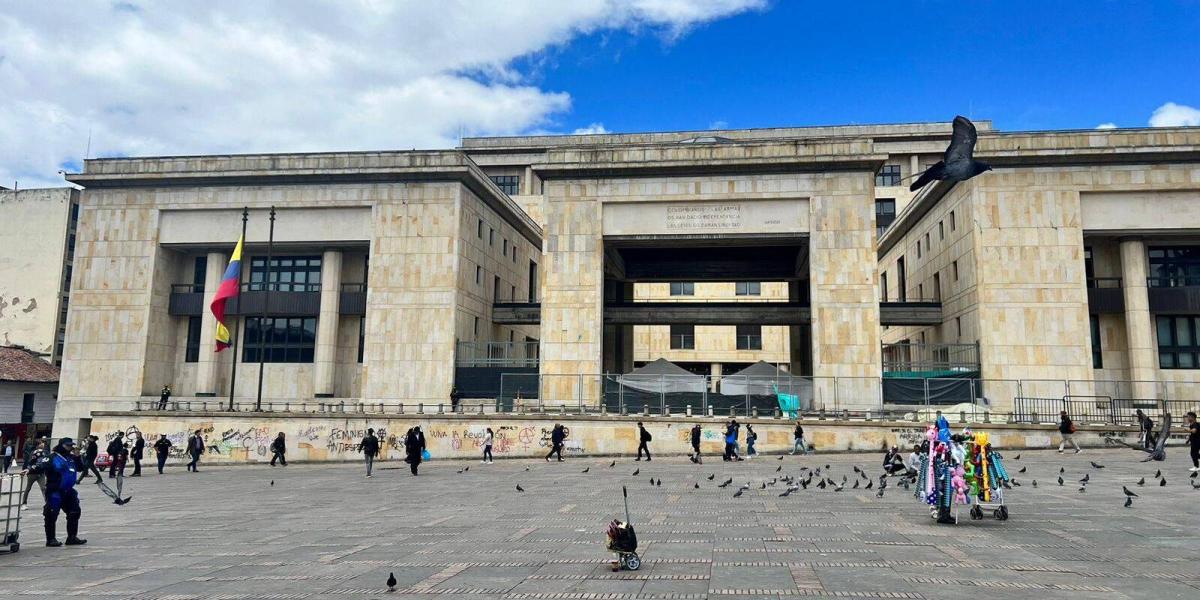
Council of State Photo: Council of State
"The software that supports the vote-counting process has been equipped with new security features, which protect it from tampering," was one of the arguments the Council of State used to dismiss the lawsuit against the seats of congressmen from the ruling coalition.
Evidence of this strengthening is the State Council's compliance with the Mira ruling. It insisted that the State must own the counting software to guarantee both the security and complete traceability of transactions made on this platform. This was the case: the Registry purchased a counting program from Indra for the 2022 elections and delivered it for use by the National Electoral Council (CNE). The latter is responsible for all official vote counting nationwide. For these elections, the next step is to contract the same Spanish company to maintain and update the acquired software.
Former registrars respond President Petro's remarks—who said last year that he considered the Venezuelan electoral system, fully controlled by Nicolás Maduro's dictatorship, to be more reliable and transparent than the Colombian one—generated strong opposition from multiple sectors.
Juan Carlos Galindo, acting registrar between January and December 2007 and serving as registrar between 2015 and 2019, told EL TIEMPO: “There is one very important issue: organizing the electoral process is a very complex process that requires a great deal of experience and support. It's not just about buying a few computers and printing. These are actions that have multiple implications that require significant experience and knowledge. Thomas and the other companies have demonstrated that they have the knowledge and experience.”
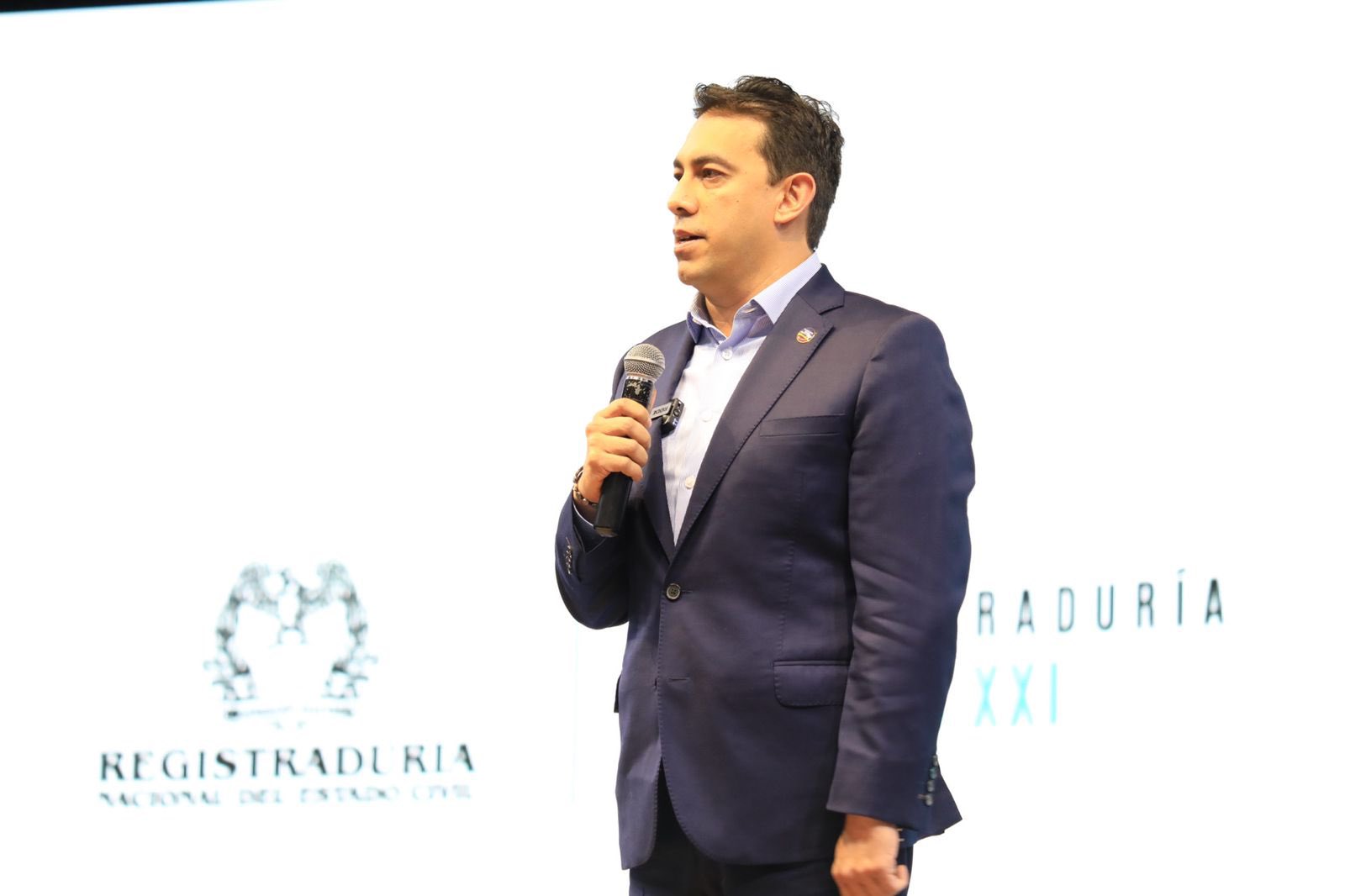
Alexander Vega. Photo: Registry Office
For his part, former registrar Alexander Vega—who led the elections in which Petro won the presidency and his party, the Historic Pact, won majorities in the Senate and the House of Representatives—stated: “A Presidential attack on a logistics operator is unacceptable, especially when he has the experience of many electoral processes. This isn't a matter of building a public works project, a bridge, where someone can make a mistake and it can be corrected. Here, elections must be held on election day: setting up the polling stations, collecting the results, transmitting them, and digitizing them. That requires a logistics operation.”
Along these lines, he responded to the President and Minister Armando Benedetti that since 2021, he has been in charge of fulfilling the order to purchase the counting software from Indra. The State has full control over all stages of this process, with traceability, and access to consolidated data is restricted, using biometrics, to the judges of the Republic who conduct the counting.
System security The registrar, Hernán Penagos, addressed the concerns expressed by the executive branch without engaging in direct confrontation. "In the last elections, the counting software was managed by the National Electoral Council (CNE), for both the congressional and presidential elections. It should be noted that this software was purchased from the Spanish company Indra and will again be made available to the CNE," he stated.
Along the same lines, the Registry has emphasized what it has been doing to guarantee next year's electoral process. The doubts from the National Government have not meant a change in plans, but rather have served as reinforcement to continue protecting an electoral system that is considered one of the most efficient and transparent in the organization of voting and the management, custody, and counting of data.
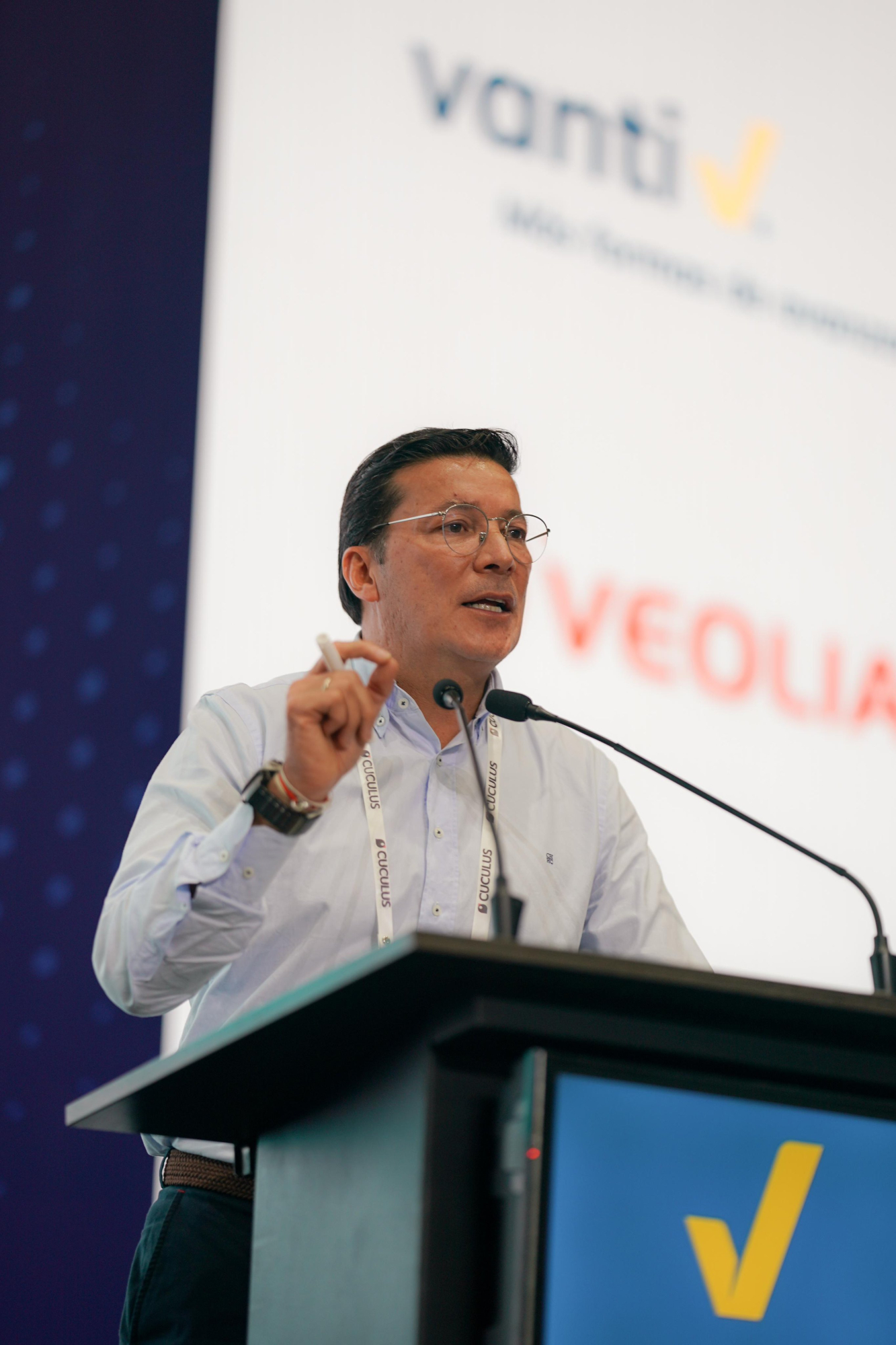
The national registrar, Hernán Penagos. Photo: Registry Office
The electoral authority mentioned five key actions it has been taking to build trust: robust audits, party access to the source code of the counting software, international observation, facial biometrics to control identity theft, and the publication of all election records. Specifically, the alleged lack of audits and access to the software's source code have been some of President Petro's claims regarding the lack of guarantees.
While the government persists with the narrative of questioning the electoral organization—incidentally, fueling the specter of a supposed plan by Petro to postpone the elections, which he himself and his Defense Minister, Pedro Sánchez, have denied—analysts and experts warn about what they consider the real risks to Colombian democracy: the growing power of armed groups in the regions, amid little progress toward "total peace," and the corruption of the electoral machinery that is already beginning to haunt voters in the regions. The specters of premature campaigns and the violation of electoral limits—questions that were specifically raised about Petro's 2022 presidential campaign, currently under investigation by the CNE—as well as the improper political participation of high-ranking officials and the misuse of public resources, continue to frighten Colombian politics.
Penagos has personally taken it upon himself to knock on doors within the Public Forces, oversight bodies, and national and international observation organizations to request support for the integrity of the process. He first contacted the Minister of Defense to strengthen security for the atypical elections that have taken place in various regions. From these conversations emerged the idea of bringing together all departmental police delegates to monitor public order.
Likewise, there was a dialogue with Prosecutor Luz Adriana Camargo to establish the National Commission against Electoral Crimes. Last Monday, more than 20 national and international observers, including the European Union, the OAS, the Carter Center, the EOM, and Transparency for Colombia, were invited to Penagos' office to address concerns and invite them to monitor next year's elections.
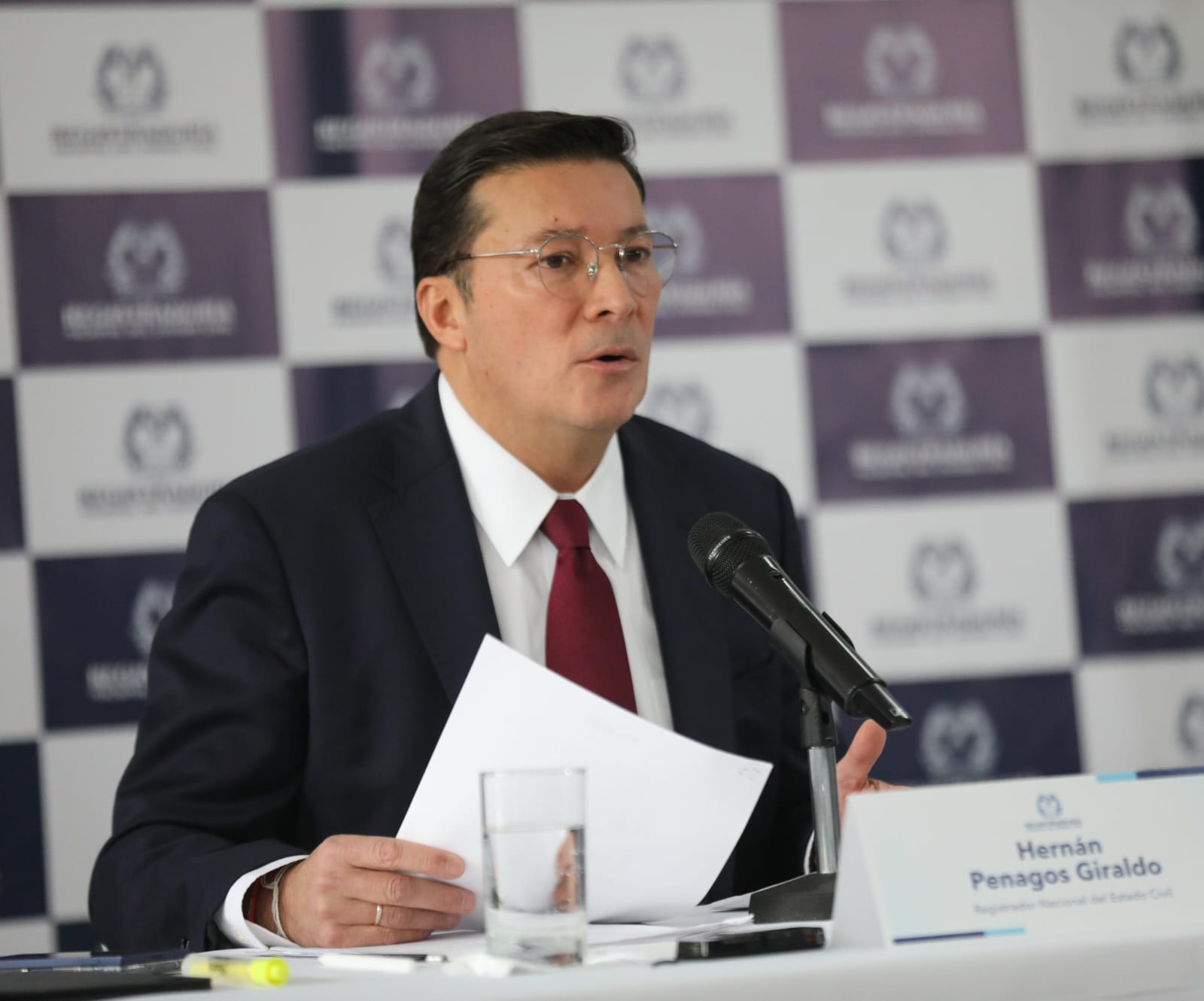
Registrar Hernán Penagos. Photo: Milton Díaz / EL TIEMPO
Behind closed doors, Penagos has issued instructions to take all possible actions to build trust and combat misinformation. In this regard, the creation of applications or chatbots is also planned to provide citizens with information about the process, as well as the use of data analytics to cross-reference information to counteract electoral transhumance and transmit it to the CNE.
Regarding the logistics contract awarded to the joint venture comprising Thomas Greg & Sons, the idea is to bring together various stakeholders to demonstrate how the various stages of the contract are being executed.
The presidential impact Civil society sectors have called attention to the presidential stance. The Electoral Observation Mission (EOM) – see interview above – stated that accusations of this type are potentially risky because they come from the person they come from (the president himself) and because they are not precise.
In turn, EL TIEMPO analyst and columnist Gabriel Cifuentes expressed his concern about the impact of the President's remarks. "(Petro's) statements are unfortunate. As head of state, without concrete evidence, he casts a shadow of doubt, delegitimizing not only the constitutional functions of the Registry Office, but also the electoral system as a whole," he opined.
Experts have said that President Petro's actions are dangerous, as they raise doubts about a system that has even been recognized for its robustness by foreign electoral observation missions, as shown in the report of the European Union-EOM (Europa EOM) in the document it constructed after the 2022 elections . "The complexity of the congressional elections posed particular difficulties, but these were largely overcome. In particular, the introduction of separate ballots clearly helped reduce the rate of spoiled votes. The Registry made concerted efforts to address the weaknesses identified after the legislative elections, and these, combined with the relative simplicity of the presidential elections, ensured that the following two days of elections ran particularly smoothly. Party witnesses were able to observe all stages without undue restrictions and take photographs of the results sheets," the document states.
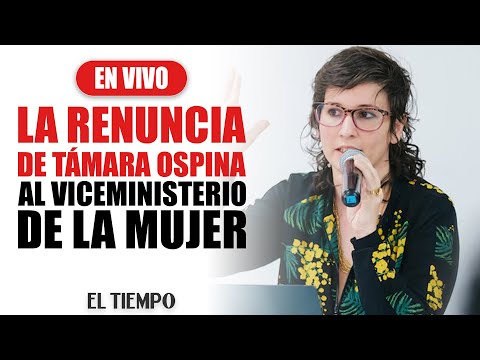
Resignation of Támara Ospina, Deputy Minister of Women. Photo:
Juan Sebastian Lombo Delgado
eltiempo




